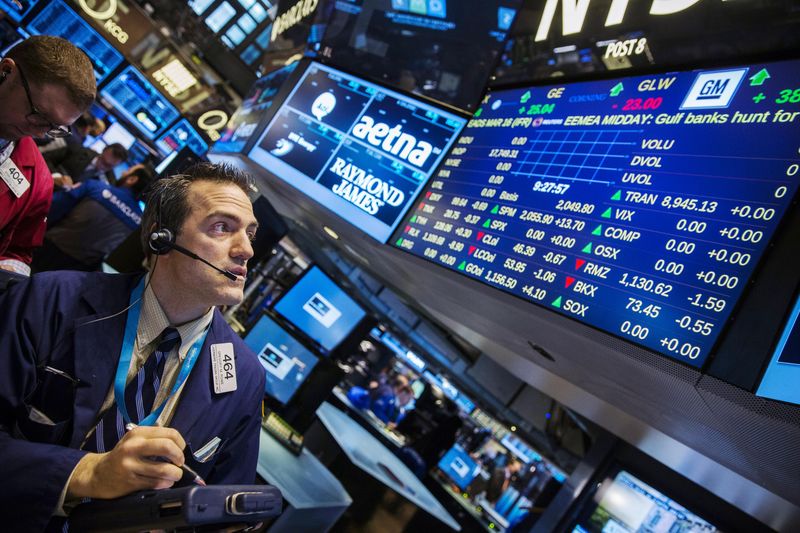Investing.com - Here are the top five things you need to know in financial markets on Wednesday, August 14:
1. Signs of economic downturn weigh on sentiment
Worrying data from China and Germany added to fears of a potential global recession.
China’s industrial output growth fell to a 17-year low in July in another sign that the trade conflict between Beijing and Washington is denting the world’s second-largest economy.
Trade tensions also dragged on China’s consumer and business confidence with retail sales cooling more than expected while slower-than-forecast growth in fixed asset investment revealed a marked loss of momentum.
Germany provided no relief to the gloomy outlook as a slump in exports drove its economy into reverse in the second quarter. The 0.1% quarter-on-quarter decline in gross domestic product led some analysts to speculate that the euro zone’s number one economy could enter recession in the third quarter as tariff conflicts and uncertainty over the U.K.’s departure from the European Union hit the country’s manufacturing sector.
2. Stocks pass from trade relief to economic worries
Global stocks were mixed in Wednesday’s trade in the wake of Washington’s announcement a day earlier that it would delay the implementation of some tariffs on Chinese imports from Sept. 1 to Dec. 15.
The ensuing relief rally led to sharp gains on Wall Street at Tuesday’s close that quickly spread to Asian markets. Hong Kong’s Hang Seng was the exception, depressed by fears that Beijing will use force to crack down on local protesters.
But buying enthusiasm faded overnight with European markets dropping and U.S. futures pointing to a lower open as markets processed the fact that the U.S. delay in tariffs brought the two sides no closer to resolution.
3. U.S. 2- and 10-year notes on watch amid yield tailspin
A worldwide bond rally was back in swing sending yields on a sharp decline after a brief pause a day earlier.
Markets are keeping a close eye on the yields for the U.S. 2- and 10-year Treasury notes as the spread hovers around just one basis point. If the 10-year yield passes below that of the 2-year, it would result in an inverted yield curve that economists warn could be a sign of pending recession.
The flight to safety and central bank policy easing worldwide has sent bond yields into a tailspin. The yield on the German Bund, the euro zone’s safe-haven benchmark, hit a new record low of -0.64% after the GDP failed to elicit any signs of urgency from the government in providing some sort of fiscal support package to the economy.
4. Cisco steps up to earnings plate
Cisco (NASDAQ:CSCO) will be in the earnings spotlight after the close as the second-quarter reporting season winds down, with less than 50 S&P firms left on the calendar.
The company will report earnings amid concerns that weaker enterprise spending on networking equipment may dent growth.
A slowdown in network spending was put in the spotlight last week when NetApp (NASDAQ:NTAP) warned its quarterly revenue would miss estimates, due to uncertainty over the global outlook.
5. Oil drops on unexpected inventory build
Oil prices slid amid further signs of global economic weakness and a surprise build in U.S. crude stockpiles.
The American Petroleum Institute’s weekly report released late Tuesday showed that inventories unexpectedly rose 3.7 million barrels.
The U.S. Energy Information Administration will release official data at 10:30 AM ET ( 14:30 GMT) amid expectations for a draw of 2.78 million barrels.
Read more: Buckle Up: You’re On The Crude Rollercoaster - Barani Krishnan
-- Reuters contributed to this report.
